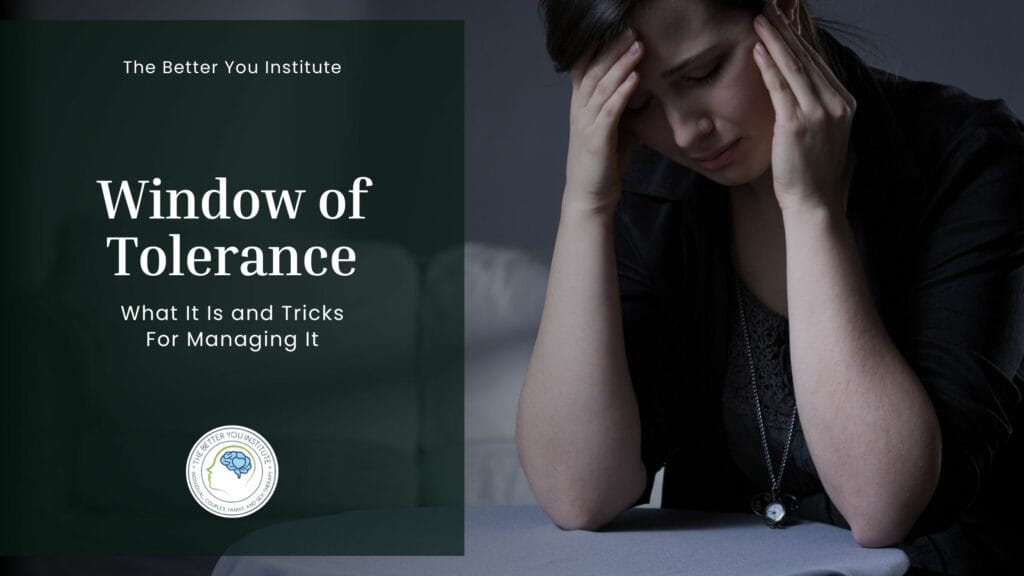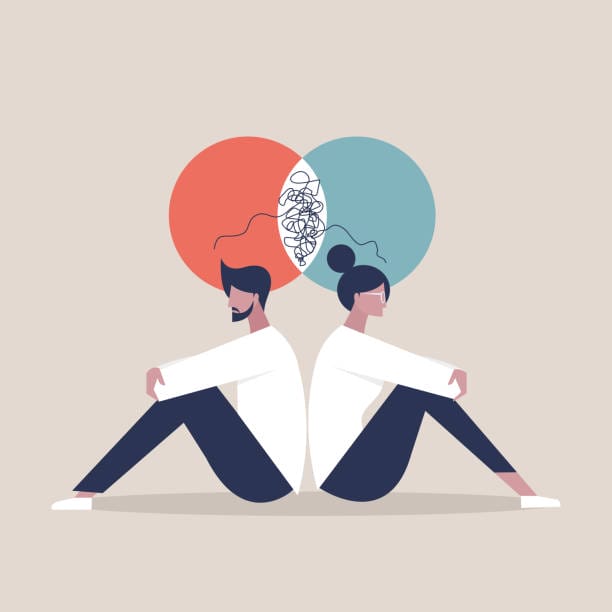A mindset is an established set of attitudes held by someone. The mindset a person holds is influenced by their culture, values, beliefs, attitudes, and life experiences. Your set of beliefs and attitudes shape how you make sense of yourself and the world around you.
- Belief: something that is accepted, considered to be true, or held as an opinion. A belief is something that you can tell yourself over and over again and your subconscious can’t differentiate if it is true or false.
- Attitude: a particular feeling or way of thinking about something. An attitude consists of a set of emotions, beliefs, and behaviors toward a particular object, person, thing, or event. Attitudes can often be the result of experience or upbringing.
Believe it or not but mindsets are changeable. There are many things you lack control over in this world, but you’re capable of controlling your mindset. Some people find it harder than others due to a multitude of reasons. You can change your mindset by learning and consciously choosing to believe that your characteristics are not predetermined and that you have the power and capacity to continue to grow over time. The important words here are learning and consciously choosing. There is power in knowledge and you can work towards having the awareness of learning and consciously choosing things. Below the two different types of mindsets are discussed further.
Table of Contents
The Fixed Mindset
The fixed mindset is characterized by the belief that our intelligence, talents, and abilities are inherent traits that cannot be significantly changed. Individuals with a fixed mindset tend to avoid challenges, fearing that failure might expose their limitations. They prefer to stick to what they are already good at, as success validates their self-worth. People who hold a fixed mindset view effort as a sign of inadequacy. The fixed mindset brings people to assume that if they were truly talented, tasks would come effortlessly to them.
One of the most concerning consequences of a fixed mindset is its adverse impact on learning and personal growth. When faced with obstacles, those with a fixed mindset tend to give up easily, as they believe that their abilities are fixed and cannot be improved through effort. Consequently, they miss out on valuable opportunities for growth and remain stagnant in their endeavors.
The Growth Mindset
On the other hand, individuals with a growth mindset believe that their abilities and intelligence can be developed through effort, perseverance, and learning. They see challenges as opportunities for growth, embracing failures as stepping stones to success. The emphasis is not on being perfect but on making progress and expanding one’s capabilities. In this mindset, effort is seen as the path to mastery and fulfillment, and setbacks are seen as a natural part of the learning process. A saying people with this mindset often say is that “I am searching for progress, not perfection.” Having a growth mindset allows you to embrace life’s challenges, empowering you to continue to learn and grow throughout life.
| Fixed Mindset | Growth Mindset |
| “Her Instagram is so popular. She must be buying followers.” | Her Instagram is so popular. I will reach out and learn from her.” |
| “The project at work looks challenging. I’ll just do my own thing.” | “The project looks challenging. I will ask questions and take this as an opportunity for growth.” |
| “When I’m frustrated I give up.” | “When I’m frustrated I keep going.” |
| “My partner isn’t making me feel loved. They should know what I want and I shouldn’t have to work at my relationship.” | “I believe my partner can learn how to love me if I communicate clearly and they work hard at it.” |
| “I’m bad at reading so I won’t try to read books.” | “I believe that I am capable of learning how to read. I will create goals to help me achieve reading books.” |
Do you have a growth or fixed mindset?
If you are wondering if you have a growth or fixed mindset take the quiz below! This quiz is adapted from Carol Dweck’s book, Mindset: The new psychology of success. To start the quiz you will need to follow 3 steps:
- Circle the number for each question that best describes you
- Total and record your score when you have completed each of the 10 questions
- Using the SCORE chart, record your mindset
| Strongly Agree | Agree | Disagree | Strongly Disagree | |
| Your intelligence is something very basic about you that you can’t change very much | 0 | 1 | 2 | 3 |
| No matter how much intelligence you have, you can always change it quite a bit | 3 | 2 | 1 | 0 |
| Only a few people will be truly good at sports, you have to be born with the ability | 0 | 1 | 2 | 3 |
| The harder you work at something, the better you will be | 3 | 2 | 1 | 0 |
| I often get angry when I get feedback about my performance | 0 | 1 | 2 | 3 |
| I appreciate when people, parents, coaches, or teachers give me feedback about my performance | 3 | 2 | 1 | 0 |
| Truly smart people do not need to try hard | 0 | 1 | 2 | 3 |
| You can always change how intelligent you are | 3 | 2 | 1 | 0 |
| You are a certain kind of person and there is not much that can be done to really change that | 0 | 1 | 2 | 3 |
| An important reason why I do my schoolwork is that I enjoy learning new things | 3 | 2 | 1 | 0 |
SCORE CHART
- 22-30 = Strong Growth Mindset
- 17-21 = Growth with some Fixed ideas
- 11-16 = Fixed with some growth ideas
- 0-10 = Strong fixed mindset
MY SCORE: _________
MY MINDSET: _________
Good job taking the quiz! This quiz offers insight into your current mindset. I encourage you to check in and ask yourself what that was like for you to take the quiz. Here are some questions you can ask yourself:
- Am I pleased with my results?
- What emotions am I feeling right now?
- What thoughts are coming up for me right now?
- What concerns/interests do I have about my score?
The Origins of Fixed Mindsets
When reading this article you might be wondering where fixed mindsets come from. The origins of fixed mindsets can be traced back to various historical and cultural influences. Throughout history, certain belief systems and societal norms have reinforced the idea that individuals are born with innate abilities and limitations, which cannot be altered significantly. It’s important to understand the beginnings of fixed mindsets so that we can gain a better understanding of how to transform them into growth mindsets.
Education
- Fixed mindsets have been perpetuated by traditional teaching methods that prioritize memorization and standardized testing. Researchers refer to this kind of memorization as Rote Memory. The focus is on scores and grades (i.e., the outcome) rather than fostering a love for learning (i.e., the journey) can lead students to develop a fixed view of their intelligence and capabilities.
Parental Influence
- Parents and caregivers play a crucial role in shaping their children’s mindsets. Well-intentioned parents may inadvertently instill fixed mindsets by praising their children’s intelligence or talents instead of their effort and hard work. Statements like “You’re so smart!” or “You’re a natural at this!” might seem encouraging, but they can unintentionally suggest that success is solely based on inherent abilities, not on effort or learning. On the other side of the coin, overly critical or demanding parents can inadvertently foster fixed mindsets by creating an environment where failure is not tolerated or is perceived as a reflection of a child’s worth. This can lead children to shy away from challenges, fearing that they might not measure up.
Culture and Society
- Culture and society can significantly influence how individuals view themselves and their abilities. In some cultures, success, and achievement are highly valued, leading individuals to fear failure and avoid risks at all costs. In contrast, cultures that emphasize the importance of effort, learning, and growth tend to cultivate more growth-oriented mindsets.
Media and Role Models
- The media can also influence a person to have a fixed mindset. Glamorizing overnight success stories and portraying successful individuals as inherently gifted can create unrealistic expectations and foster the belief that talent alone is the key to success. Television, movies, and social media platforms show the public a false sense of reality at times and it can be very misleading due to not seeing the true reality. The constant comparison to social media influencers and celebrities can lead individuals to feel inadequate and reinforce fixed mindset beliefs. People also tend to compare down or up when using social media. If they compare themselves to someone whom they perceive to be better than them, they may adopt a fixed mindset or affirm “I could never be them, they are so lucky.”
The Benefits of a Growth Mindset
- Resilience and Adaptability: A growth mindset nurtures resilience and adaptability. By seeing challenges as opportunities to learn and improve, individuals are more likely to bounce back from failures and setbacks, turning them into valuable learning experiences. This resilience can help people navigate through life’s uncertainties with confidence.
- Continuous Improvement: Embracing a growth mindset fosters a passion for learning and development. Those with a growth mindset are more likely to seek feedback and welcome constructive criticism. Seeking constructive criticism helps people strive to improve themselves. This continuous improvement not only enhances their skills but also opens up new opportunities for success.
- Embracing Effort: In a growth mindset, effort is viewed as the key to success rather than an indication of inadequacy. Effort is considered a good thing because the more you try things the more information you will receive. This mindset encourages individuals to put in the hard work required to achieve their goals, enabling them to reach their full potential.
- Overcoming Fear of Failure: Fear of failure can be paralyzing for those with a fixed mindset. In contrast, a growth mindset enables individuals to confront and conquer this fear by understanding that failures are an inevitable part of the learning process. Overcoming fear empowers people to take calculated risks and explore new possibilities.
- Developing a Love for Learning: With a growth mindset, learning becomes a joyous and fulfilling journey rather than a means to an end. The search for knowledge and skills becomes rewarding and people are able to view learning as an essential part of their personal and professional growth.
Cultivating a Fixed Mindset
- Self-Reflection:
- To start working towards a growth mindset self-reflection and awareness is the first step. This article gave you some insight into where fixed mindsets come from and the benefits of having a growth mindset. Begin by reflecting on your own beliefs and thought patterns. Recognize instances where you tend to see your abilities as fixed and explore the reasons behind these beliefs.
- Embrace Realism:
- Accept that not all aspects of ourselves can be dramatically changed through effort alone. Acknowledge that each individual has unique strengths and limitations. Sit in the comfortable and uncomfortable emotions of reality in the here and now.
- Set Realistic Goals:
- Set achievable and meaningful goals that align with your existing abilities and interests. Setting SMART goals (Specific, Measurable, Achievable, Relevant, and Time-Bound) will help you understand where you currently are and where you can realistically go.
- Celebrate Accomplishments:
- This step is huge! So many people work their entire lives to achieve goals yet when they reach their goals they do not celebrate them. Acknowledge and celebrate your achievements, no matter how big or small. By valuing your successes, you can develop a greater sense of self-worth and contentment.
- Seek Support:
- Look for a safe environment and share your thoughts with trusted friends, family, or mentors who can provide insight and perspective on your journey toward embracing a fixed mindset. You are who you surround yourself with so with that being said seek people who have growth mindsets to assist you on your journey.
Conclusion
Embracing a growth mindset opens doors to resilience, continuous improvement, fearlessness in the face of failure, and a lifelong love for learning. By understanding the power of a growth mindset, we can break free from self-limiting beliefs and unlock our true potential. Embracing a growth mindset allows you to embark on a journey of self-discovery and empowerment. If you want to learn how to embrace the opportunities that lie ahead through a growth mindset or have questions about starting the process, schedule an appointment at The Better You Institute with one of our Philadelphia therapists. Call us today at 267-495-4951 to set up your appointment.
Meet The Author:

Claire Savage, M.Ed
Professional Counselor
Claire Savage, M.Ed, a Professional Counselor and Practicum and Intern Liaison, is known for her caring and open-minded nature. Her background as a first-generation Irish American has shaped her focus on identity development in therapy, helping clients understand their passions, purpose, and values. Drawing from her Division I Rowing experience at Temple University, Claire emphasizes the importance of mental health and the role of failure in personal growth. She approaches therapy like a puzzle, using person-centered, experiential, somatic, emotionally focused, and cognitive behavioral approaches to help clients gain new perspectives and control over their lives. Claire holds a Bachelor’s and Master’s in Counseling Psychology from Temple University. Passionate about Philadelphia, she enjoys exploring coffee shops, attending workout classes, and spending time with loved ones. Claire is dedicated to guiding clients on their wellness journey.
Learn more about Claire Savage ⇒







